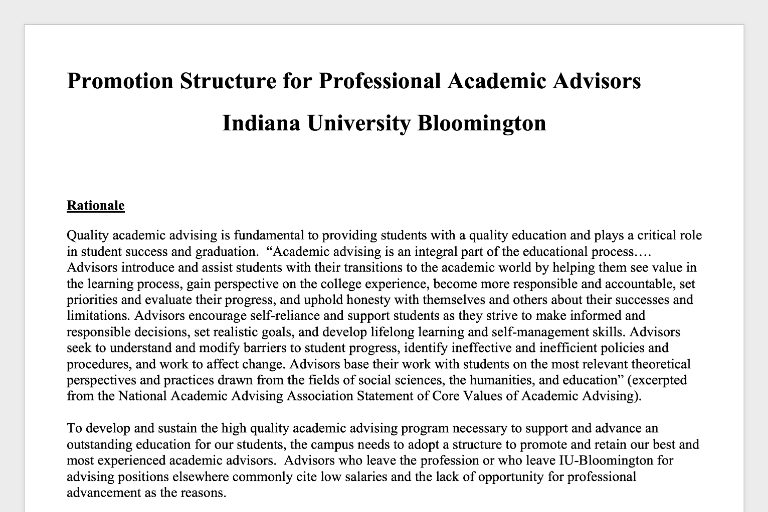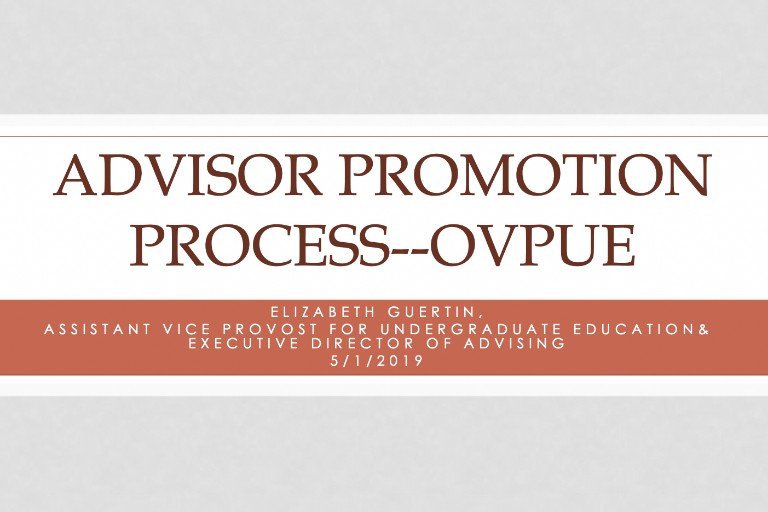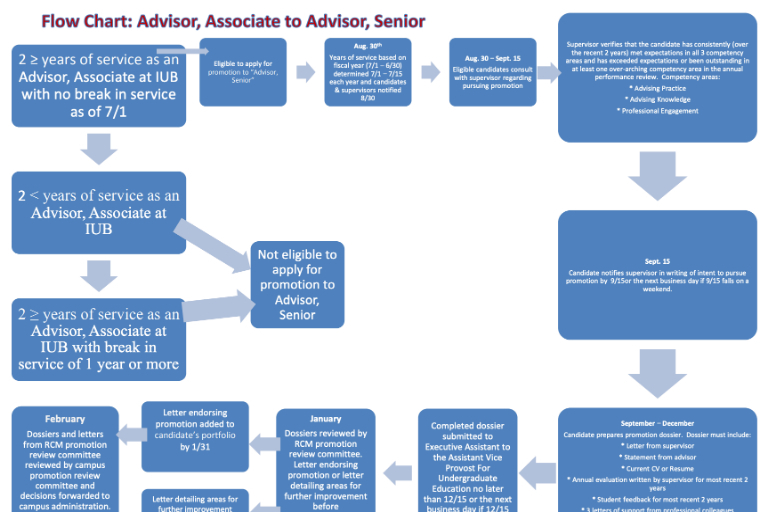A well-designed advisor promotion process not only educates those outside the field about the nature of the profession and the research foundation of advising as a discipline, but also can serve as the scaffolding for a profound and sustained change in the advising culture of an institution elevating advisor performance and motivating professional engagement. A promotion process that defines minimum acceptable standards for advising knowledge and advising practice, that defines mastery in the field and that recognizes and rewards those who demonstrate advanced expertise is fundamental to advising becoming a recognized profession within higher education. Professions are self-regulating and advancement within a profession is based on demonstrated mastery of the content, philosophy and practice of the field rather than on years of service. NACADA, as well as other professional organizations, has articulated advising standards, professional ethics, core values and, most recently, advising core competencies.
Implementation of an advisor promotion process and standards makes explicit the knowledge and expertise expected of those at the entry level and at each level of advancement; standardizes advisor professional competencies; articulates, for those within and outside the profession, the conceptual basis of advising as a discipline; and provides a commonly understood rationale for the approaches practiced by professionals in the field. Standards for professional advancement also communicate the value added by advanced knowledge and expertise to those within and outside the profession and cultivate a professional mindset among advisors.




